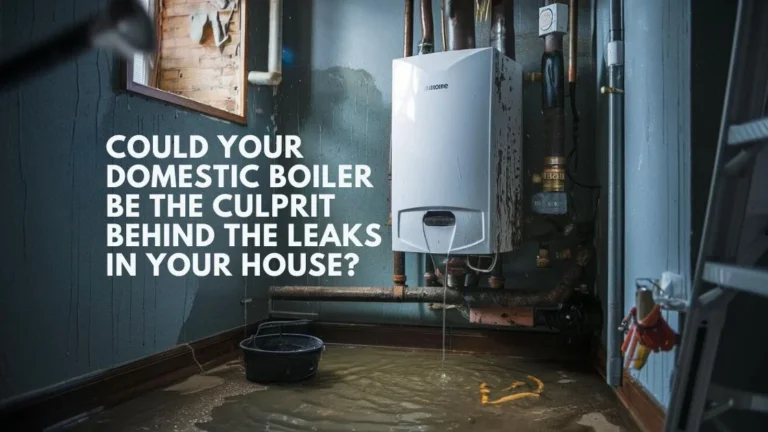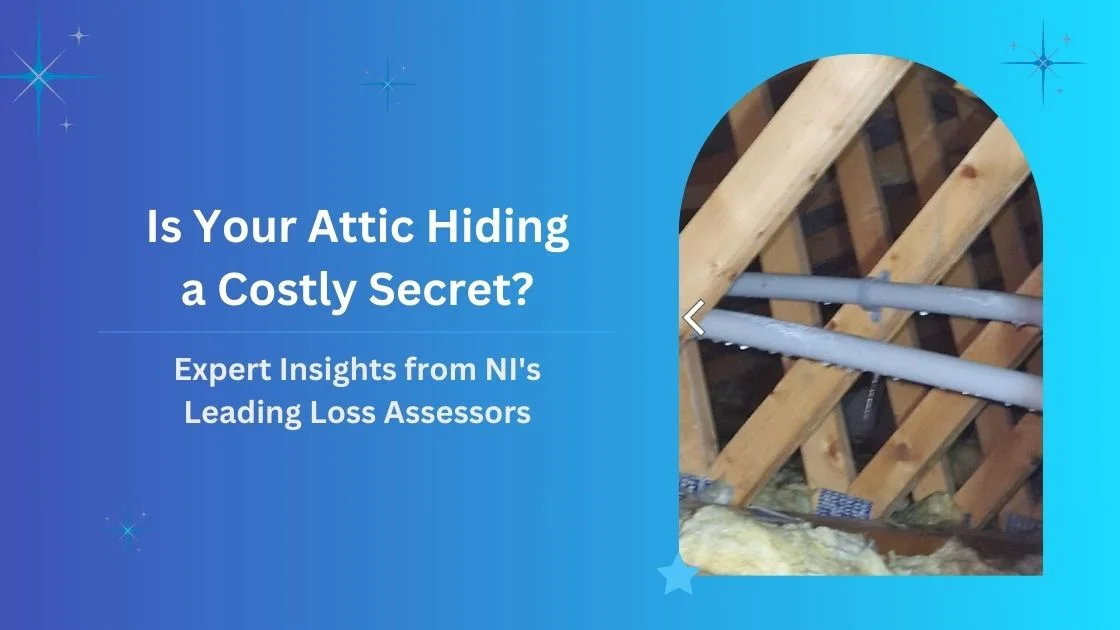Yes, your domestic boiler could be responsible for leaks in your home. Common issues include high pressure, corroded pipes, faulty pump seals, and loose connections.
These problems often manifest as water pooling around the boiler or damp patches on nearby walls. If you suspect a leak, act quickly by turning off the boiler and the water supply to minimise damage.
To prevent future leaks, regular maintenance and monitoring of pressure levels are essential. Understanding these factors can help protect your home.
For further insights on managing boiler-related issues, consider exploring additional solutions for leak detection and prevention.
Common Causes of Boiler Leaks
Boiler leaks are a common issue that homeowners may encounter, often stemming from a variety of underlying causes.
- High pressure in the boiler system, typically exceeding 1-2 bars, can trigger leaks, particularly from the pressure relief valve designed to discharge excess water.
- Corroded pipes—often a result of ageing infrastructure—can develop holes, allowing water to escape.
- Faulty pump seals, which deteriorate over time, also contribute to leaks, as do loose connections at joints due to thermal expansion.
- A cracked heat exchanger indicates a significant problem that necessitates immediate professional assessment.
Regular boiler maintenance and proactive leak detection are essential for mitigating these risks, ensuring a safe and comfortable home environment for everyone. Learn more about the causes of boiler leaks and what you can do about them
Identifying the Source of Leaks
Identifying the source of leaks in a domestic boiler system is essential for maintaining efficiency and safety.
Begin with a thorough visual inspection around the boiler, looking for visible water pooling, which often indicates the leak’s origin. Check out these urgent boiler repair signs for more information.
Pay close attention to the pressure gauge; readings below 1 bar or above 2 bars can signal underlying issues within the system.
Listening for dripping sounds can also help you pinpoint the leak’s exact location.
Inspect the pipework for any signs of corrosion, as ageing or rusted pipes are frequent culprits of leaks.
Furthermore, damp spots or water stains on walls and ceilings near the boiler might signify leakage from faulty components or connections, guiding you towards necessary repairs.
Immediate Actions to Take
When a leak is uncovered, it is essential to act swiftly and decisively to mitigate potential damage. Follow these immediate actions for an effective emergency response:
- Turn Off the Boiler and Water Supply: This prevents further leaks and flooding, safeguarding your property.
- Contain the Leak: Use buckets or towels to minimise water damage while awaiting professional assistance.
- Document the Situation: Take photos of the leak for insurance claims and to assist technicians in diagnosing the issue.
Additionally, prioritise safety precautions by cleaning up any spills to prevent slips, and monitor for electrical hazards.
If you suspect a gas leak, turn off the gas supply and contact a Gas Safe registered engineer for urgent inspection. Your proactive measures can make a significant difference.
Long-Term Prevention Strategies
Effective long-term prevention strategies are essential for safeguarding your home against leaks and ensuring the longevity of your domestic boiler system.
Regular boiler maintenance is critical; schedule annual servicing with a Gas Safe registered engineer to identify potential issues early.
Insulating pipes can prevent corrosion and freezing, particularly in colder months, reducing the likelihood of leaks.
Moreover, installing leak detectors near the boiler allows for prompt detection of any issues, minimising the risks of water damage.
Conducting periodic chemical flushes helps eliminate limescale and debris that can lead to pressure problems and leaks.
Ultimately, consistently monitoring the boiler pressure gauge to maintain levels between 1 and 2 bars is fundamental for effective leak prevention, ensuring your home remains safe and secure.
Cost Implications of Boiler Issues
The financial implications of boiler issues can be considerable, affecting both immediate repair costs and long-term energy expenses. Homeowners need to take several factors into account when dealing with boiler-related leaks:
- Repair Costs: Expenses for boiler repairs can vary from £100 to £500, depending on the complexity of the problem.
- Replacement Costs: New installations can cost between £2,000 and £4,500, influenced by the model and installation specifics.
- Energy Efficiency: Upgrading to an A-rated boiler can result in energy savings of up to 30% annually.
Furthermore, proper documentation of damages may enable insurance coverage, helping to mitigate some repair costs.
Regular maintenance can prevent expensive repairs and save up to £300 each year, highlighting the importance of proactive care for your boiler system.
Key Takeaways
- High pressure in the boiler system, exceeding 1-2 bars, can lead to leaks that affect your home.
- Corroded pipes and ageing infrastructure are common causes of leaks from the boiler.
- Faulty pump seals and loose connections at joints can contribute to water escaping.
- Cracked heat exchangers signify serious issues that require immediate professional evaluation.
- Regular maintenance and monitoring can prevent leaks and save on costly repairs.
Concerned about a potential boiler leak in your home?
Northern Ireland’s top Boiler Leak Detection Service can help you avoid costly damage and ensure your safety!
Think about the risks and expenses a leaking boiler can cause—higher energy bills, property damage, and even health hazards. Our expert team uses advanced technology to detect boiler leaks quickly and accurately, giving you peace of mind and preventing further complications.
Imagine the confidence you’ll have knowing your boiler is leak-free and functioning efficiently. Our non-invasive, effective detection methods mean minimal disruption while providing maximum accuracy. Trust Northern Ireland’s leading specialists to protect your property and well-being.
Don’t let a potential boiler leak turn into a major issue. Contact PCLA today to schedule your service.



